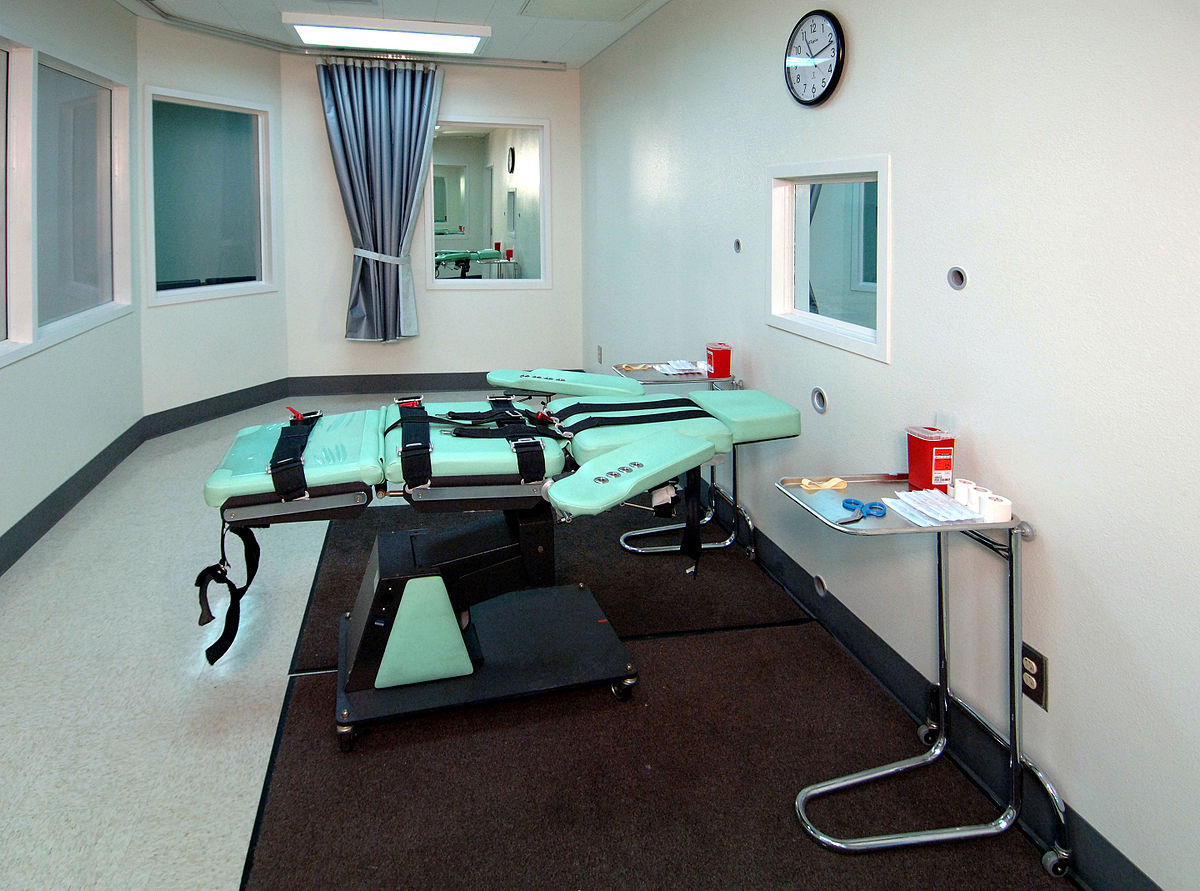Should people who are in prison – even on death row – be allowed to donate their organs? Sally Satel has recently made the case. After all, there is a “crying need” for organs, with people dying daily because they do not receive a transplant. But, as Satel points out, the federal prison system does not allow for posthumous donations and limits living donations to immediate family members.
Imprisoned people, whether they want to donate a kidney whilst alive or all their organs after an execution, are rarely able to do so.
There seem to be a couple of practical justifications for this. For one, it might interfere with the date of execution; secondly, the prison system might have to bear some of this cost. I want to address these two issues before moving on to some of the other ethical issues involved.
It’s important to see that the actual date of execution has no ethical significance – it is not a justice-driven consideration. If it turns out that an execution is delayed two weeks to enable a kidney transplant, so what? Executions are delayed by stays all the time, and if there is some good to come out of changing the date then keeping it fixed doesn’t seem particularly important.
Secondly, there may well be costs to the prison system in, say, medical care for a patient who has donated a kidney (or for the removal of organs post-execution). But the prison system is part of the state. Given there is a nationwide shortage of organs, we might expect the state to play a role in addressing this, and if it has to bear some cost, why should it matter that the prison system – not the health system – must pay? After all, the criminal justice system is meant to help broader society. (That is not to mention that there might be other ways of funding these transplants that don’t increase costs for the prison system.)
There are further explanations for why states do not permit donations. Christian Longo – who sits on death row in Oregon for murdering his wife and children – asked to posthumously donate his organs and was told that the drugs used in executions destroy the organs. But Longo points out that other states use drugs that do not cause such destruction. Still, the specific drugs used in executions brings up an ethical concern: how painful these drugs are is not clear, and there seem to be some incredibly distressing executions.
Fiddling around with these drug cocktails in order to ensure the viability of organs may introduce major risks to the condemned.
Longo asked to donate his organs, so too did Shannon Ross, who is serving a long prison sentence. The fact that people are requesting to donate means that there seems to be more than mere consent here, there is an eagerness to donate. But this might hide some deeper worries, and to see this we need to investigate why inmates wish to donate.
We might also worry that Longo wants to get some “extra privileges” or to somehow improve his own situation. Perhaps an appeals or parole board would look more favorably upon somebody who has given up a kidney. But that doesn’t seem to be the case for Longo, who is resigned to death (though he has not yet been killed, Oregon has a moratorium in place). Yet others might volunteer to donate in the mistaken belief that this will help their case. This might make the expressed consent less voluntary than it seems, since they don’t fully understand the risks and benefits of what they are consenting to.
And this leads to what I think the most difficult moral issue here is: whether prisoners can autonomously consent. Longo points out that consent can sometimes be exploited: prisoners in the 60s and 70s were paid to volunteer for “research into the effects of radiation on testicular cells.”
That, even if it is seemingly voluntary, is unacceptable – prisoners are in a vulnerable position and we shouldn’t exploit them for medical research.
Both for prisoners who will be released and those on death row, I think we can find a useful parallel with cases of voluntary euthanasia. The key similarity is that both are in a desperate situation and are offered a chance that seems to help them improve their position.
David Velleman, for example, poses this challenge to defenders of voluntary euthanasia: perhaps even offering somebody the choice to die is coercive. To simplify a very complex argument, if someone thinks they might be a drain on their family, then offering them the chance to be euthanized might not actually help them do what they would autonomously choose. They want to carry on living, and they regret that this burdens their family. But once confronted with the option to die, they are called upon to provide a justification for continued existence and might, then, feel compelled to take an option they might otherwise not. And we can see how a prisoner on death row might similarly feel compelled to donate – lacking a suitable justification to refuse – once confronted by the choice.
In addition to these concerns about mistaken beliefs and the coerciveness of choice, there might be another deep temptation to donate. Longo notes that he has little opportunity to give back to society in any way – a society that he recognizes he has wronged and harmed. Giving away his organs seems to be a way of giving back. Donation, then, provides a way of atoning, if only to a limited extent.
The worry here is that the prospect of atonement is a bit like the worry of being a burden on your family.
When you’re given the option – donate your organs in the one case, end your life in another – this prospect burns too brightly.
It might be that the prospect of atonement blots out an individual’s proper concern with, say, their own future health (or, if they are on death row, with objections they might have to organ donation).
Yet I think that – powerful and troubling as this concern might be – this is only a worry. In offering his argument, Velleman notes that he isn’t opposed to a right to die, just that this is a (perhaps defeasible) argument against an institutional right to die. Likewise, the argument in our domain only goes so far. Many people have no objection to organ donation, so there is no such concern that they, if on death row, are making the wrong choice for themselves. Plenty of people who are under no pressure at all choose to donate a kidney – why can’t we allow prisoners to make that choice, too?
If we worry too much about the possibility of letting prisoners make a bad choice, we might be paternalistic and also take away from them the free choice to selflessly help others.





